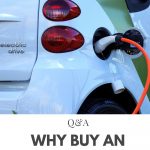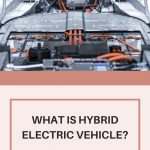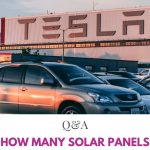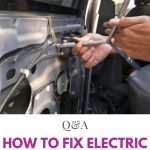Will Volkswagen Go Bankrupt
Topic: Will Volkswagen Go Bankrupt
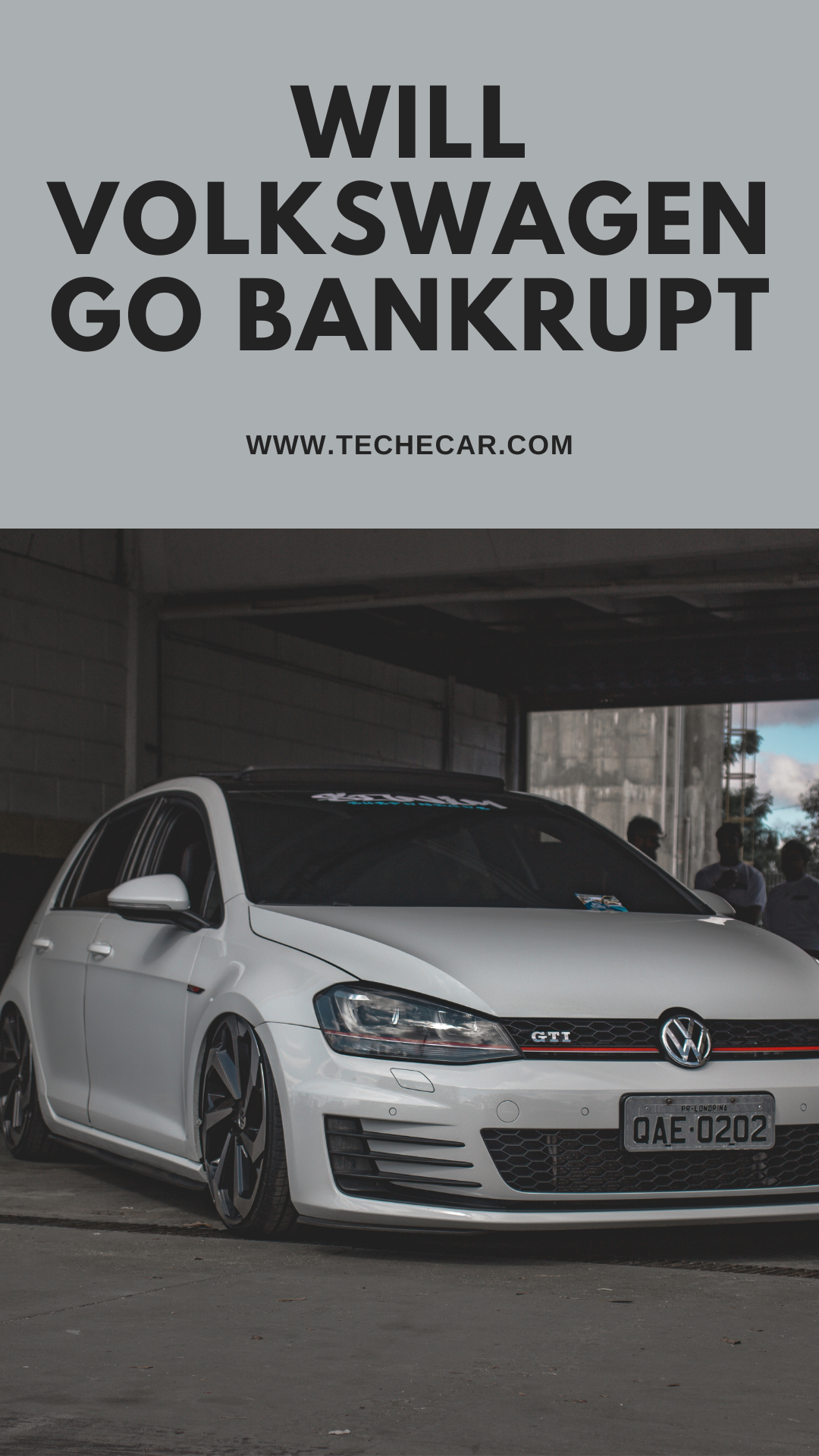

Will Volkswagen Go Bankrupt
Is it crazy to believe that the world’s largest automobile manufacturer could go bankrupt? Not if the company’s chairman claimed the current emissions controversy might bankrupt it.
According to Reuters, VW CEO Hans Dieter Poetsch told the German daily Welt am Sonntag that the financial consequences from the scandal might bankrupt the company. The threat is most likely divided into two pieces if this is correct.
The first is that international fines might amount to billions of dollars. The second risk is that consumers’ trust in the brand may erode, resulting in a drop in sales. The actual cost of restoring the autos is less than a tenth of a per cent.
Fines are expected to cost a lot of money. According to some experts, the cost to VW in the United States will be in the billions of dollars. There is no precedent for such a large fine, and the amount might be increased.
Volkswagen is also facing sanctions in several other countries. China could be the most concerning. It is the world’s largest market, and VW holds the largest proportion of the auto market there.
According to Interbrand, Volkswagen’s brand is worth $13 billion, while Audi’s is worth $10 billion. The value of a brand does not always translate into revenue. It’s a good indicator of how much a company’s image can depreciate.
Volkswagen’s major worldwide rivals will almost certainly highlight the German automaker’s troubles to potential customers, and maybe more than once.
Such a massive auto bankruptcy hasn’t happened in a long time. In June 2009, General Motors Co. (NYSE: GM) declared bankruptcy. The federal government aided General Motors. GM has not committed any criminal acts.
Due to excessive pension and labour liabilities, as well as declining sales, it had simply taken on too much debt. VW, on the other hand, would not feel the same way. However, one government agency has a vested interest in assisting VW.
The state of Lower Saxony holds 13% of VW’s stock, and the company has five plants in the region, employing tens of thousands of people.
Will Volkswagen Go Bankrupt
On CleanTechnica, we devote a lot of digital ink to Tesla. This makes sense for a few reasons: Tesla sells by far the most popular electric car ever made. That car now routinely ranks in the top 10 lists for best-selling cars and vehicles (sometimes even first).
The company is the only large corporation dedicated entirely to electric transportation and renewable energy. However, as Tesla CEO Elon Musk and others have stated, we need far more than Tesla to tackle our climate, pollution, and energy challenges in the transportation sector alone.
While we all admire what Tesla accomplishes, I doubt many Tesla fans believe the company will address our major transportation issues on its own. Many of us hope that other automakers will follow suit and move to electric transportation relatively quickly.
Some of us are bullish on Kia and Hyundai, some on Nissan and Renault, others on Chinese automakers, and others on Volkswagen. Still, the entire line is that we need tens of millions of electric vehicle sales each year, not just millions, and that requires at least a few big businesses.
Musk has stated that while evaluating manufacturer potential, investors should focus on two key issues: batteries and autonomy. I’m ignoring autonomy because it’s difficult to believe that any other automaker has a proper plan in place.
Many people are still suspicious of Tesla’s intentions and self-driving vehicles in general. It’s difficult to tell who’s second if Tesla is first. It’s difficult to tell who’s first if Tesla isn’t in the lead. In any event, the more pressing and practical issue of batteries is a more transparent beast.
Here are a few things to consider when it comes to batteries:
- Tesla has chosen a vertically integrated strategy for batteries to improve them and reduce costs, as well as because you can’t truly guarantee a significant supply of batteries at this moment if you aren’t making them.
- Almost all other automakers rely on a small handful of battery manufacturers, the most notable being LG Chem, CATL, Samsung SDI, and SK Innovation. The first two businesses appear to have an agreement with everyone.
- German manufacturers have been debating whether to manufacture batteries in Europe or rely on imports. The waffling appears to have continued, but these automakers have moved closer to obtaining them.
- Korean and Japanese automakers look to be completely dependent on battery sources, increasingly coming from China.
- To ramp up battery production, battery suppliers need proof of EV demand, and automakers need low-cost, high-performance batteries to compete with Tesla and others in the EV market.
- Rapid progress is difficult due to this obstacle. Customers must wait months or a year to entice electric automobiles like the Hyundai Kona EV and Kia Niro EV. For a Tesla Model X price, we get the comparatively small Jaguar I-PACE.
- Automakers who don’t want to sell many EVs (for various reasons) may blame low EV sales and even high EV pricing on a lack of battery supply (more demand than supply = higher prices).
- It’s unclear whether any non-Tesla automaker outside of China will be able to secure adequate battery supply shortly to sell millions of electric cars each year.
- Tesla can take some of their sales if they all slow-walk it, but not enough to bankrupt any of them, especially given the conquest sales are spread out all over the country.
- Consumers either fall into one of two camps: those who know a lot about Tesla and see its compelling benefits or those who go to a traditional automaker for a car when they need one and are unlikely to be steered toward an EV.
On the other hand, what if a large automaker takes things seriously and upsets the peace?
That is something I believe the Volkswagen Group can accomplish and is on the approach of doing. If it isn’t, it most certainly should be.
There are a few signals that Volkswagen is getting serious about this market and, as a result, has a good chance of landing a lot of conquest sales.
In recent years, the business has made significant EV investments, announcing more than three years ago that it aimed to sell a few million completely electric vehicles per year by 2025, accounting for 20–25 per cent of total sales.
Such plans take time to implement, but the automaker appears to have been preparing the basis for this since then and is sticking to the basic goal. (Note, however, that according to Volkswagen’s new global e-mobility webpage, “By 2025, Volkswagen expects to sell at least 1 million electric cars per year.”)
The company is developing electric vehicles from the ground up, using a common EV platform for all models and classes. The corporation has already set a goal of bringing 30 fully electric cars to market by 2025, according to the 2016 news.
“By 2028, Volkswagen will have released over 70 all-electric models across the Group,” according to the above-mentioned e-mobility portal.
When asked by a journalist if there was enough of a market for EVs at the launch of the ID.3, board member Jurgen Stackmann responded, “We are Volkswagen, we can create the market.” (This is not a verbatim quotation.)
Since then, VW has been airing commercials on TV and the internet all over Europe (even in Poland). It’s honestly touting its electrified offerings and attempting to entice buyers (bad metaphor).
VW may have gotten huge battery supplies from a variety of sources. There have been rumours concerning the company’s battery sources. However, it is unknown how much production capacity it plans to have in 2020, 2021, 2022, and other years.
In Europe and the United States, the Volkswagen Group has been at the forefront of deploying fast and superfast charging stations.
VW’s first fully electric vehicles, created from the ground up, are aimed at high-volume vehicle classes, serving as a replacement for the Golf (ID.3) and an appealing electric crossover (ID.CROZZ).
We’ve seen how well the Tesla Model 3 has sold – it’s consistently one of the top 10 vehicles in the United States, the #1 car by revenue in the United States, and occasionally the #1 car or even the #1 passenger vehicle in various European nations.
It’s completely dominant in its vehicle class. Suppose VW offers the ID.3 and ID.CROZZ at the right price and with the right features, those vehicles may find equally disruptive demand. However, they will appeal to customers who prefer a traditional brand, a traditional dealer/service network, and a less revolutionary interior and infotainment.
The question is, how many mainstream consumers aren’t sold on the “rEVolution” enough to buy/wish for a Tesla but are interested enough to buy a fully electric VW?
This is probably what VW is frantically trying to figure out. I do hope, though, that the corporation is committed to doing what Stackmann stated it could: developing the market.
Anyone who spends even a little time in an electric vehicle can see the advantages. The competitiveness of batteries and electric vehicles has already crossed the threshold.
The final important step is to show consumers the benefits and how the disadvantages have essentially vanished because of better batteries and charging infrastructure. A VW dealer should have little trouble funnelling someone in for a Golf or Tiguan into an ID.3 or ID.CROZZ, respectively.
VW should have no trouble convincing regular vehicle buyers to go from a Toyota Camry to an ID.VIZZION, a Honda Civic to an ID.3, and so on. If VW can successfully navigate this shift, it will capture so many conquest sales from Toyota, Honda, BMW, and other automakers that it will solidify its position at the top of the automotive food chain.
Of course, if Tesla and Volkswagen are selling millions of conquering vehicles each year, other automakers will be losing sales. It’s difficult to conceive that this won’t result in some auto industry bankruptcies.
Currently, the Volkswagen Group sells over 1 million automobiles per month. The number was 886,100 in July 2019, down 2.4 per cent from July 2018. (908,100). It sold 393,600 cars in Europe, 334,800 in Asia-Pacific, 80,700 in North America (including 55,800 in the United States), and 53,000 in South America.
It’s unknown how many of these sales are electric vehicles, but the corporation sells a few thousand in Europe and a few thousand in the United States each month. Its global internal EV market share is estimated to be around 1%.
The company’s current market capitalization is €72.574 ($80.47).
Volkswagen Bankruptcy Probability Analysis
Volkswagen’s Probability Of Bankruptcy is a measure of how likely it is that the company will go bankrupt. The normalised value of Z-Score is the Probability Of Bankruptcy for equities. It is taken from a multi-factor model created by Macroaxis for funds and ETFs.
The score is used to forecast the likelihood of a company or fund going bankrupt during the next 24 months. Unlike Z-Score, Probability Of Bankruptcy is a number between 0 and 100 that indicates the likelihood that a company will go bankrupt in the next two fiscal years.
Volkswagen’s Current Chances Of Bankruptcy
The majority of Volkswagen’s fundamental indicators, such as the Probability Of Bankruptcy, are part of a valuation analysis module that assists investors in identifying equities that are currently trading at higher or lower prices than their true value.
Volkswagen Ag Repstg is considered inexpensive if the real worth is higher than the market price, and we recommend buying it. Otherwise, a sell signal is generated.
Our bankruptcy probability assessment for Volkswagen is based on Altman Z-Score and Piotroski F-Score but is not restricted to these measurements. We employ numerous more strategies to improve the accuracy of anticipating the Volkswagen financial crisis to be applied to a broader range of sectors and marketplaces.
Financial statement analysis, various sorts of price projections, earnings estimates, analysis consensus, and fundamental intrinsic valuation are all examples. Please explore the options below to learn more about the various metrics for calculating Volkswagen Ag Repstg’s financial health.
Is it expected that Volkswagen’s industry would expand?
Is there any chance of expanding the company’s product line in the future? Factors like this will help Volkswagen’s stock price rise. Investors will place a higher value on Volkswagen if they believe it will grow in the future.
The financial sector is predicated on precisely defining current growth potential and future valuation. All of the above Volkswagen valuation data must be considered, but the key to forecasting future worth is deciding which aspects weigh more strongly than others.
Volkswagen Ag Repstg’s market value is not the same as its book value, which is the value of Volkswagen that is reported on the balance sheet. Investors also establish their assessment of Volkswagen’s value that differs from its market or book value, referred to as intrinsic value, which is the true underlying value of Volkswagen.
Investors compute intrinsic value using a variety of methodologies and buy a company when its market value falls below its intrinsic value. Because various things that may not directly affect Volkswagen’s fundamental business (such as a pandemic or general market pessimism) can affect market value, market value can differ significantly from intrinsic value.
Please keep in mind that the value of Volkswagen differs significantly from its price since the two are calculated using different methods. Earnings, sales, fundamental and technical indicators, competition, and analyst estimates are all used by investors to assess the value of Volkswagen.
On the other hand, Volkswagen’s price is the price at which it trades on the open market and symbolises the amount that a seller and buyer agree on.
The chance of a firm filing for chapter 7, 11, 12, or 13 bankruptcy protection SHOULD NOT be confused with the real chance of a corporation filing for bankruptcy protection.
Financial Distress, according to Macroaxis, is an operational condition in which a company is having trouble meeting its present financial obligations to creditors or meeting the expectations of its investors. Macroaxis derives these circumstances daily using both public financial statements and stock price analyses in response to market conditions or economic downturns, as well as short- and long-term historical volatility.
Analysis of liquidity, revenue patterns, R&D expenses, obligations, and public headlines and social attitude are all taken into account. According to the most recent financial statement, Volkswagen Ag Repstg has a Probability Of Bankruptcy of 77 per cent.
This is 86.04 per cent more than the Consumer Cyclical industry and 68.38 per cent more than the Auto Manufacturers industry. The likelihood of bankruptcy for all US stocks is 93.32 per cent lower than for the company.
Recommended Articles:


